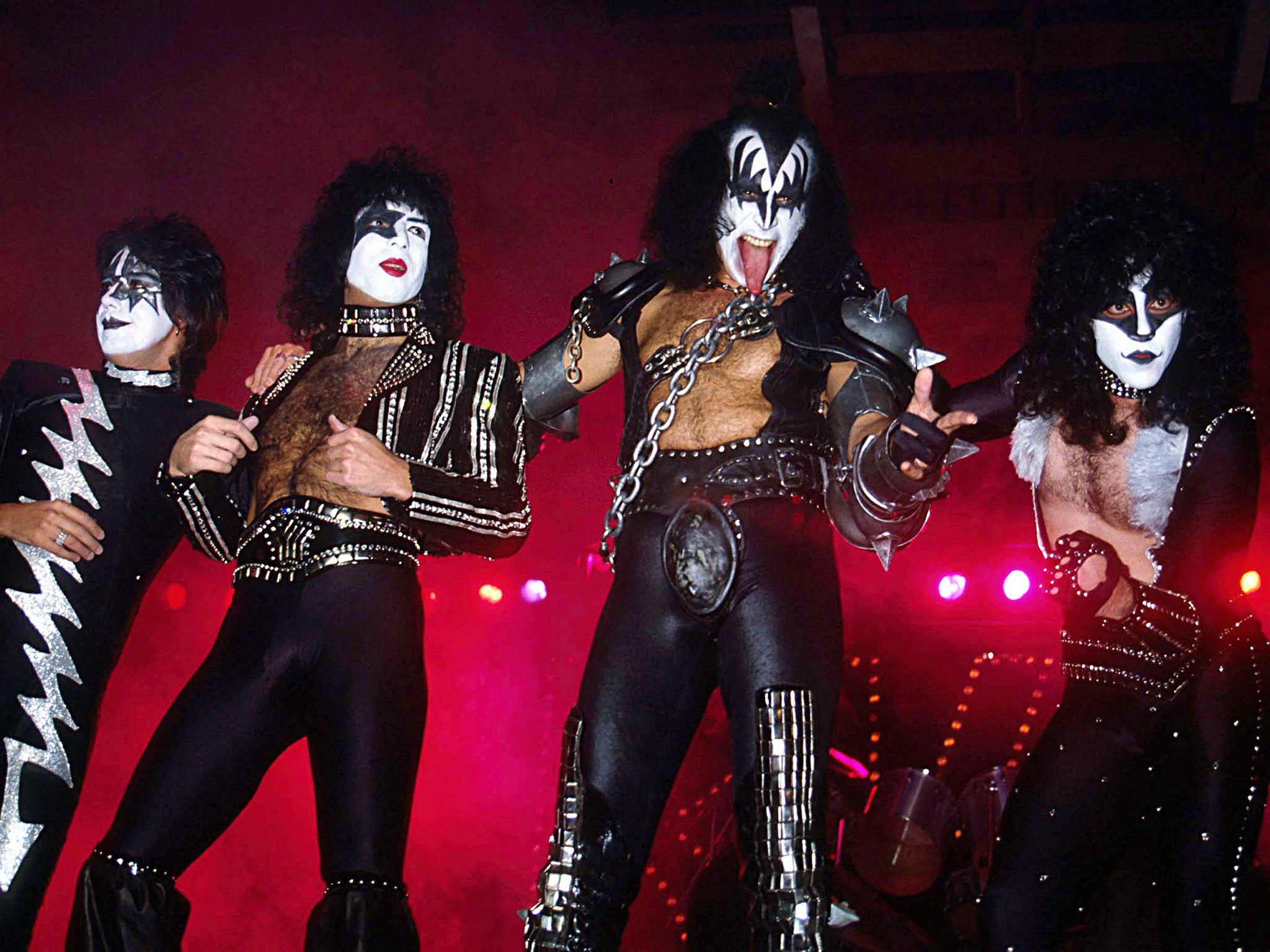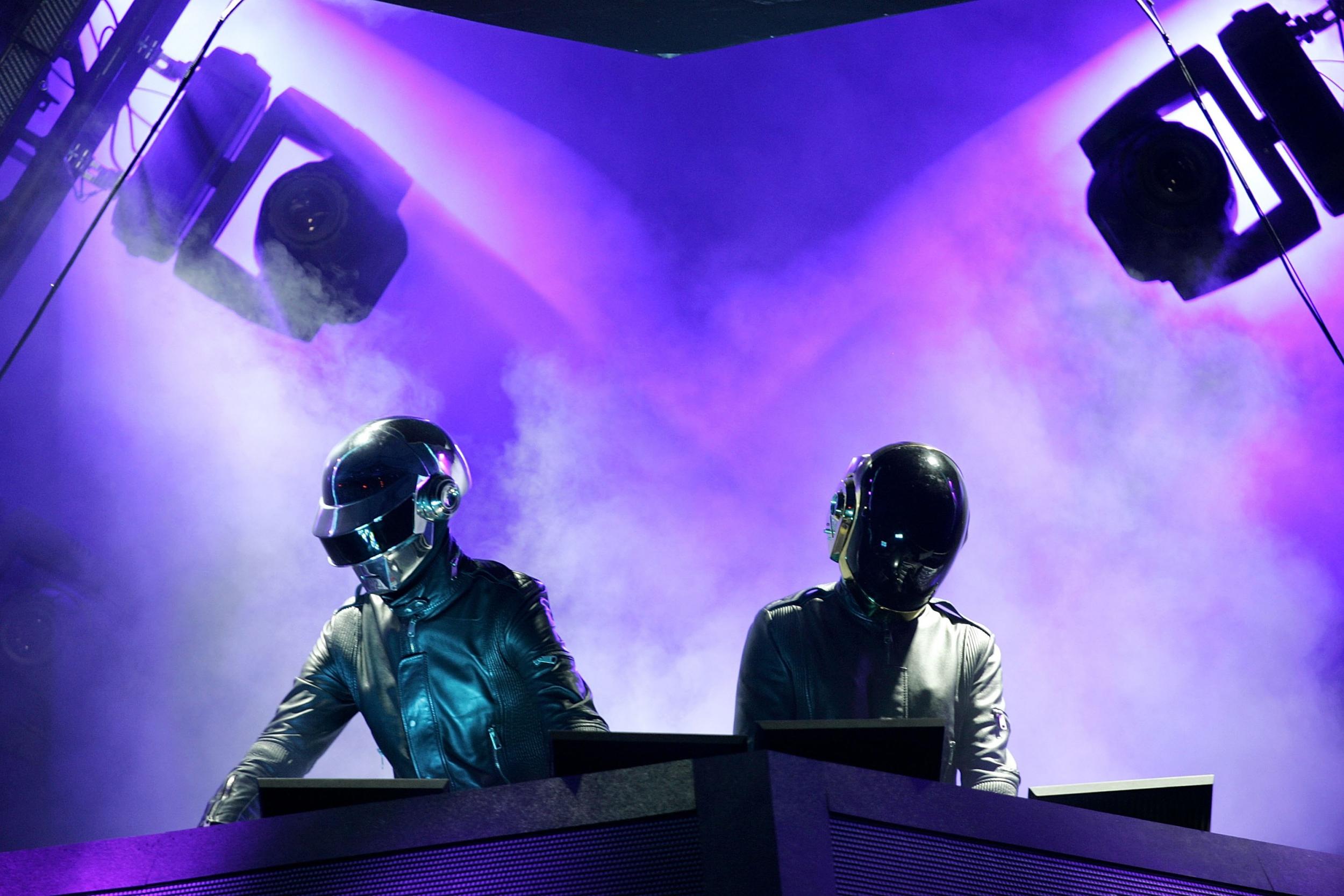Who are you? Inside the world of anonymous bands, from Sleep Token to Daft Punk
What’s behind artists from Paul McCartney to Daft Punk hiding their identities? Michael Hann tries talking to bands who don’t want you to know their names

In the world of the anonymous band, you’re never quite sure whom you are dealing with. Take Sleep Token, a decidedly heavy kind of band, whose last album Take Me Back to Eden reached No 3 in the UK albums chart. They’re big enough to headline Wembley Arena this coming December, but they’ve still managed to keep their identities secret. Lots of people believe that their singer, who goes by the name of Vessel, is really Chris Martin from Coldplay. Me? Not so much. But the magic of the anonymous band is that frisson of uncertainty. Sleep Token won’t even do interviews these days (though one Q&A piece in 2017 offered this unhelpful summation of themselves: “How we got here is as irrelevant as who we are – what matters is the music and the message.”).
So the first thing to say is that I’m pretty sure the person I am talking to is called Tony Wolski and I’m pretty sure he’s a member of a band called The Armed. Then again, though, I’ve spoken to him before, and then he claimed to be called Adam Vallely (though then, as now, he admitted to membership of The Armed).
This time, though, I think he really is who he says he is. Tony Wolski has his own website, which shows he’s a filmmaker – he’s made commercials for Ford, Chevrolet and McDonald’s, as well as music videos for The Armed, Tegan and Sara, Converge, Metz and Protomartyr. If nothing else, we can be sure that Tony Wolski exists and that he is connected to The Armed. Chances are, he also plays guitar and sings with them.
Until now, The Armed have been anonymous. Only with the forthcoming release of their excellent fifth album, Perfect Saviors, have the band – who emerged from the US hardcore punk scene in 2009 – decided to fess up to the fact that yes, there are real people with real names involved. There was no grand plan to come clean – it was more that their last album, 2021’s Ultrapop attracted so much attention that for the first time people were trying to work out who they were. There were suggestions that they were the toys of some svengali (Kurt Ballou of the legendary hardcore band Converge was often fingered as the puppetmaster); or that the whole thing was an elaborate postmodern joke rather than an actual band. At the point where they were making the most expansive music of their career, The Armed found that people didn’t want to talk about the music.
“The anonymity was to create an ego-free environment; it was to create this monolithic art statement,” Wolski says. “It wasn’t to prank the press. We had this thing thrust upon us as our profile elevated, and it became this mystery to solve.” The Armed has always been a collaborative project, he says, without a fixed line-up in the conventional sense, “and the collaboration has become so huge that, in a way, just listing all the names is now anonymous enough, because there’s like 40 f***ing people [on the new album]. I was there for almost all of it, and I can’t remember everyone who came in.”
Wolski laughs in agreement at the suggestion that not many people who go into music do so because they are so free of ego that they don’t want to be recognised – but there has always been a certain thrill around not knowing quite who is on a record. In 1969, Rod Stewart sang the uncredited lead vocal on Python Lee Jackson’s “In a Broken Dream”, though his voice is so distinctive that, although it took a couple of years to become a hit, it did so off the back of his growing success. The American art-rock group the Residents – who wear giant eyeballs in concert – have kept their identities secret for more than 50 years, over more than 60 albums (only one member, Hardy Fox, ever revealed his identity, in 2017, after leaving the band. He died the following year).
There have also been semi-anonymous bands, whose names were known but whose faces weren’t – Kiss, in their distinctive make-up, kept their real appearances secret until they publicly revealed themselves on MTV in 1983, which was itself an act of desperation at their fading commercial fortunes (“It wasn’t something we were doing out of bravery,” Paul Stanley told me in 2012. “We were aware that we were in dire need of reassessing, and we were paying penance for our misdeeds.”) Daft Punk, similarly, concealed themselves behind masks for many years, even though the world knew they were Thomas Bangalter and Guy-Manuel de Homem-Christo.
Bands choose anonymity for differing reasons. Sometimes it’s a matter of safety. In countries with repressive regimes, making music that might be considered an act of dissidence demands a level of concealment. The Saudi Arabian black metal band Al-Namrood have had to maintain such secrecy – anti-Islamic lyrics tending not to go down a treat in that country – that they have kept their activities secret from even their families, and have never played live, fearing arrest and execution were they to step on stage. Though she now works in public, the Jeddah-based artist Nadine Lingawi began working as Fulana – an Arabic equivalent of “Jane Doe” – in 2007 because at that point it was still illegal for women to make music. She told no one but her mother and her very closest friends.

Western acts don’t have that problem. But some do feel the need to protect their identity. In 1993, the most famous pop musician in the world and a very well-known producer entered the studio together to make a record of electronic music as The Fireman. “Paul McCartney liked to do things no one had done before,” says Youth, the other half of the Fireman (who notes the irony of already being pseudonymous – rather than working as plain old Martin Glover – in an anonymous band). “The idea of doing it anonymously must have been exciting because it was music that was so different from anything else he had done. Sometimes being Paul McCartney can be a hassle: with The Fireman he didn’t want the McCartney name to get in the way of what he was doing, which we both thought was very innovative and experimental.”
Did Youth not feel a little frustration that he had made a record with a Beatle and couldn’t tell anyone about it? He laughs. “My managers felt like that. But I was happy to play along and not reveal it anyway, though people realised quite quickly.”
McCartney might also have feared that his version of electronic music would be dismissed if the cognoscenti knew he was behind it. That was the logic the production team Stock Aitken Waterman employed when they released their single “Roadblock” in 1987. The trio were known for their work making Hi-NRG hits for a revolving cast of singers – Sinitta, Bananarama, Dead or Alive, Hazell Dean, Mel and Kim – but were routinely sneered at by critics. “Roadblock”, released anonymously in a small pressing aimed at club DJs, was very different – a sinuous piece of Seventies-influenced funk that achieved instant hipness. By the time they gave it a full release, with their names on the cover, no one could deny its pop perfection, no matter what they thought of its makers.

That’s the case with less well-known artists, who want to make a clean break with their past. That’s the case for the London-based electronic group Porcelain, some of whose members have had previous shots at success. “Being anonymous means you don’t get judged on previous things you’ve done,” says a member who wants to be referred to simply as Porcelain. “I’ve done all different sides of music – I’ve been a producer; when I was younger I was the singer in a rock band. And if what you did in the past was very different then people can’t disassociate you from your past persona and it becomes hard to establish yourself.”
Porcelain were launched during the Covid lockdowns, which meant the conventional routes to getting established – live shows, TV and so on – were not open to them. Operating instead through social media allowed them to turn anonymity into a virtue, with imaginative imagery designed to complement the music and draw attention to their work as an audio-visual experience, rather than the creation of “a band”.
“It suits our music to go in that direction and it works even more now with AI coming into popular culture,” Porcelain says. “We’ve created an avatar-heavy imagery that suits our music in a way humans couldn’t.”
Your ego is a dangerous thing and you should be aware of that
Tony Wolski had laughed at the notion that rock music is not famed for attracting those without ego, and that it seemed an unusual motivation. But ego is rather more complicated than the simple need to show off and get validation. “If people appreciate the Porcelain brand as a whole, then that satisfies my ego because I know I created the thing they like,” Porcelain says.
The Swedish psychedelic band Goat – known for performing in masks, for being profoundly unhelpful in interviews, and for turning shows into something approaching rituals – are also ego-deniers.

“Your ego is a dangerous thing and you should be aware of that,” says one nameless member. “It can control you in ways you are not aware of. Stay away from individual recognition and keep the ego in check. We wanted to be seen as one thing – Goat does not consist of individuals. We see ourselves as part of a bigger soul – a hermetic way of thinking, but that’s how we see it. We see ourselves as vessels. We know how hard that can be to keep the mind set on that thing. When you get affirmation, the boosts are not a part of you – you need to be aware of what your purpose is. You still get the affirmation on stage, but after the show we take off our masks and we can go and have a beer on the dancefloor without being recognised.”
The fact that the audience are not fixating on individuals helps them create the hypnotic world of their shows, too, he says, “by trying to sacrifice the individual selves while we are performing, trying to disconnect from our normal personas and become something else – one organism”.
At a very basic level though, in an age of instant information – when you can go on social media and find out where your favourite musicians are, what they’re doing, what they’re eating for breakfast – there’s something oddly satisfying about returning to an age of minimal information. Youth remembers growing up in the 1970s and loving the mystery around Led Zeppelin albums, with their minimal information. More power to the anonymous, he says.
“I think it is a lovely and confident and ambitious statement to do that. It’s almost like saying, ‘We don’t care if it’s successful.’”






Join our commenting forum
Join thought-provoking conversations, follow other Independent readers and see their replies
4Comments